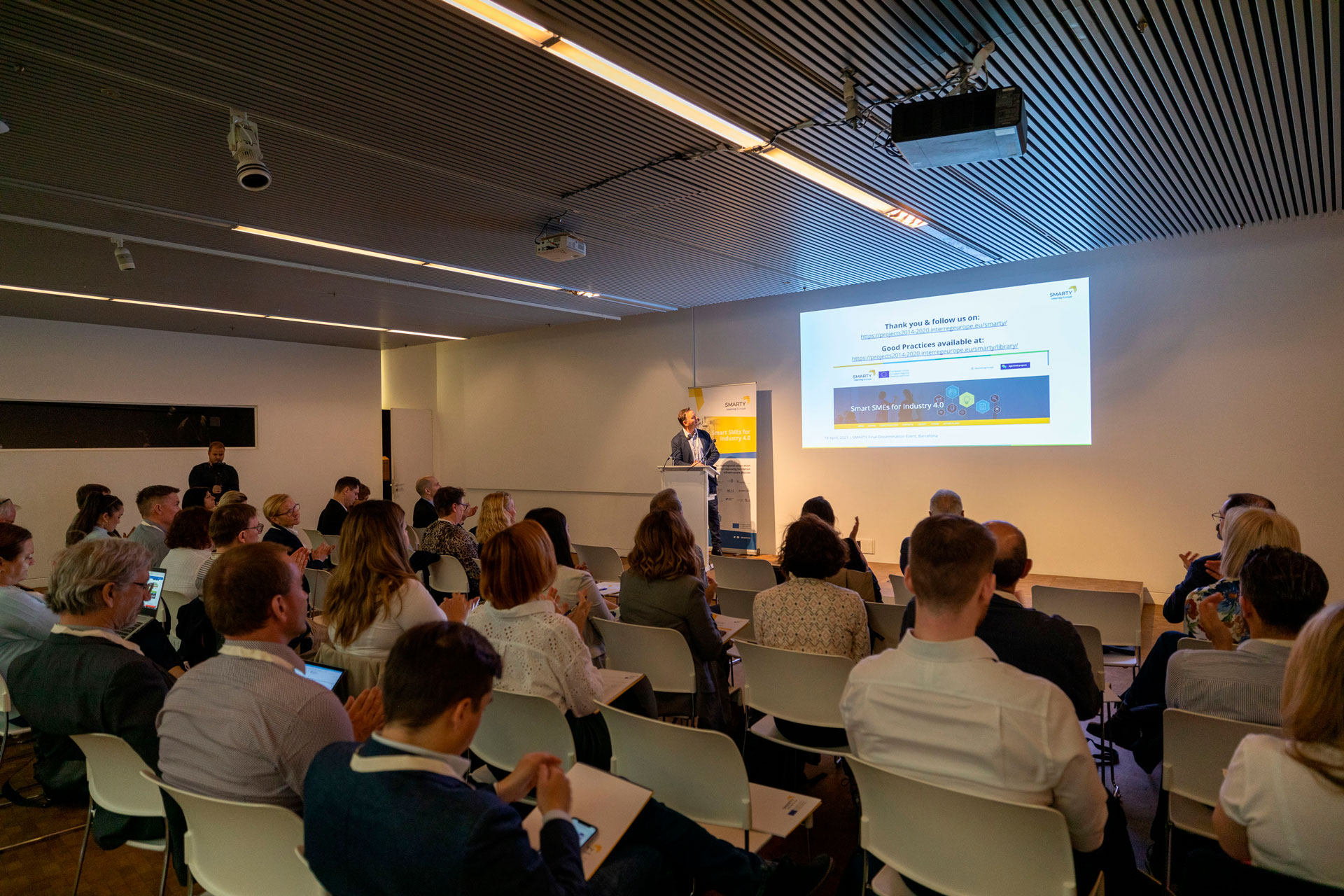
Outcomes of action plans and final policy event
Interreg’s SMARTY project shared outcomes of regional action plans for stimulating Industry 4.0 transformation in final policy event
The Fourth Industrial Revolution is here, are we ready?
Companies across the globe are digitally transforming as they are challenged to improve business processes and develop new capabilities and business models. 4IR technology patent applications are on the rise, Industry 4.0 ambitions are high, manufacturing and manufacturing technologies do well, spending on the Internet of Things in industrial markets looks promising … and the list goes on. The so-called fourth industrial revolution is of course not just a matter of technology. It is also a matter of cooperation between European regions! But while large companies are anticipating the changes arising from the digital revolution in the production and value creation process, SMEs are struggling to embrace the Industry 4.0 revolution. The uptake of advanced manufacturing solutions is still a challenge to SMEs: only one in five manufacturing companies have already used advanced manufacturing solutions.

Partners from regions across Europe have decided to join forces to exchange experience on how policies related to Structural Funds can unlock the full potential of Industry 4.0, fully convinced that the success of digital transformation will greatly depend on the SMEs, which feels in need of more practical support.
SMARTY is born to establish a common basis for policy learning among its members to overcome fragmentation of Industry 4.0 solutions and their enabling potential by dealing with main challenges hampering their diffusion into the European Union ecosystem. It is therefore key to bring together and to connect best capabilities across the EU as to foster the development, upscale, and commercialization but also diffusion of Industry 4.0 solutions – whether these are new technologies, products, services, business models, etc.
The time has come to implement Industry 4.0, let’s cooperate!
€2,409,029.00
Research and innovation
The overall result of the project will be to improve the capacity of the partners’ policy instruments to support the adoption of Industry 4.0 by SMEs through the implementation of new and better projects.
Specific outputs:
The Programme's strategy focuses firmly on growth, building on England's competitive advantages and addressing key bottlenecks in specific sectors and geographies. The aspiration is for locally driven growth and development. The resources will be focused on the core objectives of innovation, SME competitiveness and the low carbon economy whilst at the same time recognising the need for targeted interventions to unlock barriers that matter strategically to specific areas in England.
One of the main objectives is to increase investment in research and innovation by small and medium enterprises in sectors and technologies identified through smart specialisation (S.O. 1.2). Two results will be sought. The first is to increase the proportion of small and medium enterprises that are innovation active. The second is to increase the number of businesses actively innovating to bring new products or new processes to the market.
What should be improved is the commercialisation of new or enhanced products or services by small and medium sized enterprises, whether through increased investment or better collaborations, but this requires the involvement of a much wider group including large firms in cooperation with their supply chains and other small and medium sized enterprises, higher education institutions, public sector institutions and research centres, Catapult Centres and other centres of excellence.
The 2014-2020 ERDF Operational Programme for Castilla y León aims, among others, to promote innovation, contributing to a change in the production model of Castilla y León, through synergies with the regional smart specialization strategy RIS3, boosting of projects of interest, knowledge transfer and modernization of infrastructures as well as promote the development of ICT in line with the Digital Agenda for Europe and the new knowledge economy as a basis for a sustainable economic recovery.
The operational programme concentrates more than 70 % of the available budget on research and innovation, ICTs, SMEs and the low-carbon economy. It sets out ambitious objectives in terms of cooperation between entreprises and R&D institutions.
Manufacturing companies, and in particular SMEs, must develop novel competences through innovation activities in the transition to Industry 4.0. There is a margin of improvement in the manufacturing sector through diagnosis, integration of concepts like big data, IoT, 5G or modelling, and the creation of specialization hubs for the development of novel innovation strategies. Modernization of innovation infrastructures and knowledge sharing with other regions will be also important in the generation of synergies, opening new capabilities for defining a sustainable action plan for improving the sectoral approach. A multidisciplinary regional collaboration is well defined and influenced during the project.
The Programme will play a decisive role in encouraging economic development and ensuring prosperity for all citizens in Slovenia while taking into account the specific characteristics of the two less developed regions - Western Slovenia and Eastern Slovenia. The objectives of the OP are distributed into 11 priority axes. It aims, among other, to strengthen efforts particularly in the area of R&D, by improving international competitiveness of research, innovation and technological development in line with smart specialisation for enhanced competitiveness and greening of the economy which is focused on strengthening research, technological development and innovation.
It is necessary to ensure more efficient use of existing research infrastructures and to fully exploit the knowledge to support innovation development processes in companies to ensure the development of technologies, processes, products and services with market potential in order to improve the transfer of knowledge between enterprises and research institutions. In order to increase productivity and competitiveness in existing companies, it is necessary to participate in R&D projects and to promote innovative ideas in the development of new modern and digitized products. As a large number of SMEs in Slovenia are still equipped with classical CNC machine tools and IT systems, they need large investment and R&D projects to ensure the integration of efficient production systems in line with Industry 4.0.
The support provided by this policy instrument is aimed at increasing the number of enterprises undertaking the R&D activities leading to the creation of innovations by increasing their efficiency, scope and intensity. The support also focuses on strengthening the cooperation between enterprises and the research institutions, particularly through: i) undertaking mutual small research projects; ii) increasing the scope and scale of implementation of existing research results; iii) other activities aimed at joint defining of priority research directions that in a longer perspective lead to innovative solutions commercialization.
Since Industry 4.0 is not explicitly present in the OP, it is highly relevant and advantageous to promote it among stakeholders, and to envisage how to operationally embed it into the OP in the upcoming stages of implementation. For many Polish SMEs the production equipment still bases on simple mechanical solutions, which in many cases can be remodelled to obtain system compatible with Industry 4.0 paradigm. In other cases the whole machine park should be re-organised. Yet for SME’s the investment costs and low scope and scale of R&D projects undertaken, often slow down or even make impossible to develop the fully efficient, modern automated and robotised production lines. The facilitation of exchange of good business- and policy- led practices towards I4.0 uptake among entrepreneurs is therefore of critical importance for the regional competitiveness.
The Finnish Operational Programme “Sustainable growth and jobs 2014-2020 – Finland's structural funds programme” (OP) receives a combined amount of EUR 1,299,461,095 from the European Regional Development Fund (ERDF) and the European Social Fund (ESF) under the Investment Package for growth and jobs in Finland. The OP will contribute to Finland reaching the key EU and national development priorities along with the "Europe2020" objectives.
The SO 2.1 targets to an increase of growth-oriented SMEs. Within the project the focus will be on the SMEs capacity to engage on innovation processes allowing them to introduce new high value added products or services. This is based on innovation and resource efficiency of production processes, products and services by implementing ICT applications. SO implementation should be developed to meet the needs of SMEs who have the capacity for I4.0 and targeting SMEs capacity to participate on innovation processes in regionally, nationally and internationally utilising innovation support mechanisms.
The Programme aims to boost economic growth in the region of Catalonia and to help it contribute to Europe reaching its goals of smart, green growth for all. EU funding is targeted, according to the agreed regional smart specialisation strategy - primarily on Research, Development and innovation (R+D+i) and improved access to and quality of information and communication technologies (ICT) - as well as an increase of their use in the public and the private sector (e-gpverment, e-commerce).
The Programme will strengthen research and innovation infrastructure and networks – including linkages with private companies, and enhanced knowledge transfer between enterprises and research institutions. More than 40% of the allocated funds is dedicated to the priority "Knowledge and innovation". The Programme expects to support at least 700 enterprises engaging in R+D activities.
Research and innovation in Catalonia are still below the average of the euro zone. It is necessary to improve the innovation and technology transfer infrastructures and develop the technological capabilities of the R&I infrastructures and thus contribute to the socio-economic development of the country. The main weaknesses of the Catalan research and innovation system to be improved are the insufficient efforts in reserach and innovation activities by the Catalan SMEs and the insufficient cooperation and strategic alliances between companies and between companies and the knowledge production system.
The “Impresa 4.0” National Plan represents an opportunity for all companies that are ready to take advantage of the unprecedented incentives offered by the Fourth Industrial Revolution. The Plan provides a wide array of consistent and complementary measures promoting investment in innovation and competitiveness. These measures can be put in place by every company in a very straightforward way – avoiding any evaluation procedure and the associated red tape - and, above all, without any restrictions in terms of size, sector or location of the company. Impresa 4.0 affects every step of the life cycle of companies that want to improve their competitiveness by supporting investments in the digitisation of industrial processes, the improvement of the workers' productivity, and the development of new products and new processes. The most relevant measures included in the Impresa 4.0 Plan are: an accelerated depreciation incentivizing companies to invest in new capital goods, and tangible and intangible assets (software and IT systems) for the technological and digital transformation of their production processes; the “Nuova Sabatini” facilitation to request bank loans to invest in new machinery, plants etc.; tax credit for research and development investments of companies; the “Patent Box” regime allowing a reduced taxation rate on income deriving from intellectual property rights; incentives to support “Innovative Startups and SMEs”; a guarantee fund for SMEs.
The Smart City Plan of Prato aims to create a livable urban environment with better city services and a higher quality of life. It addresses all sectors of the city life and affects all areas of municipal responsibility such as Public Governance, Energy, Environment and Smart Mobility, Living Places, Economy and Entreprises, Culture and Tourism, Security and Safety, Healthcare&Welfare.
The development and implementation of the Plan are strictly connected to the urban pre-commercial experimentation of the 5G wireless technology which represents the most important challenge for Prato for the transition towards the digital city. The experimentation of the technology for the fifth generation mobile networks upheld by the Smart City Plan allows the creation of innovative services is expected to profoundly change the way people live and move and has enormous potential to act as a driving force for the growth of the companies in the Prato District.
The Plan touches upon two areas of the Economy and Industry through two measures:
- Sensors and IoT. The city will be equipped with the IoT / IoE platform, enabled by 5G, for Smart city Management, utilities and remote plant monitoring, industrial automation.
- Industry 4.0. Thanks to high transmission speed, low latency and high reliability, the 5G technology is expected to improve the management and control of distributed energy, of energy efficiency, of the machine diagnostics and personnel management systems.

Interreg’s SMARTY project shared outcomes of regional action plans for stimulating Industry 4.0 transformation in final policy event
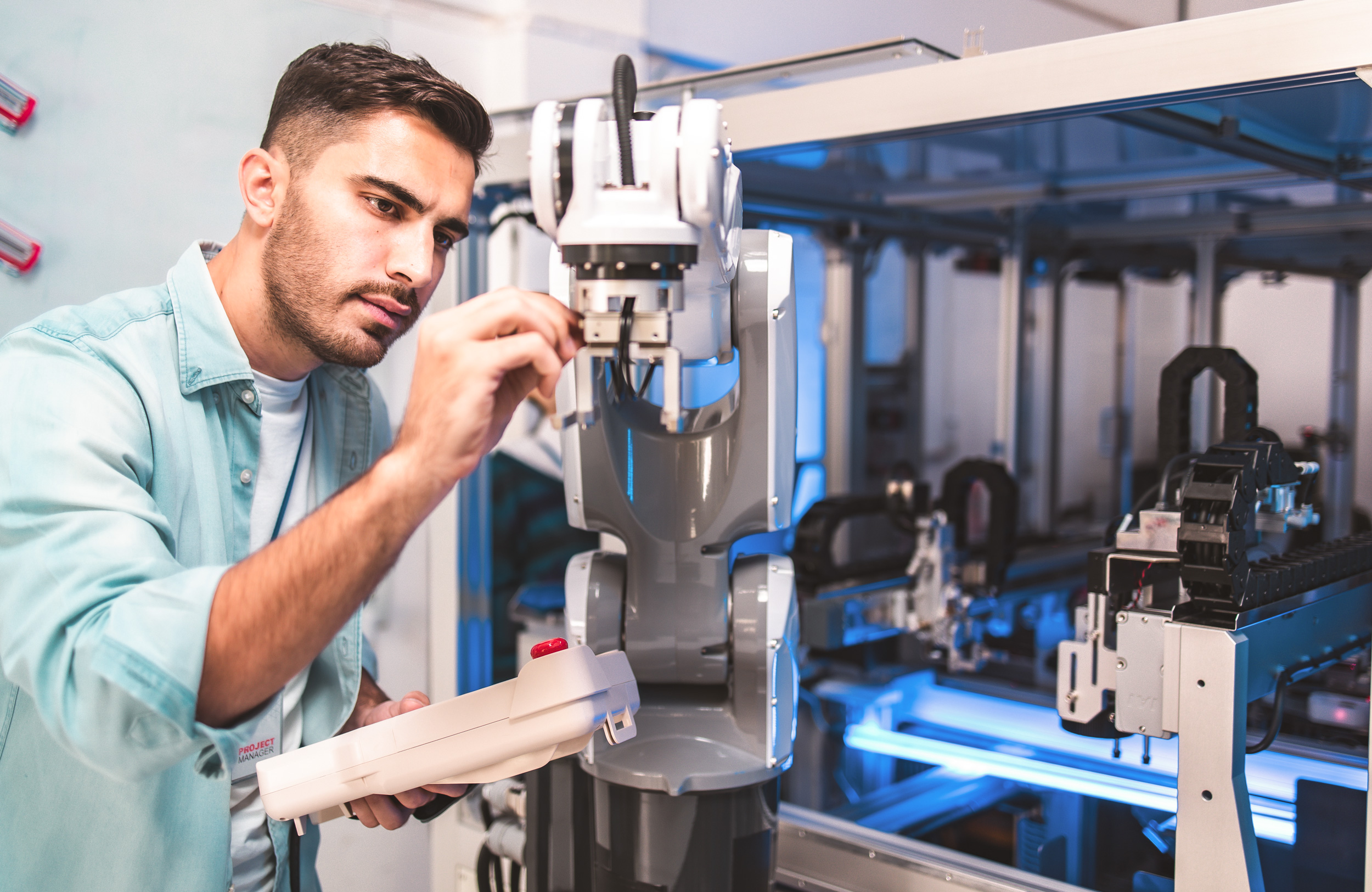
SMARTY improves the implementation of regional policies and programmes aimed at increasing the adoption of Industry 4.0 solutions and technologies by SMEs

Partners from Lapland and Catalonia participated in the webinar "How to turn the theory of industry 5.0 into practice" hosted by the Policy Learning Platform
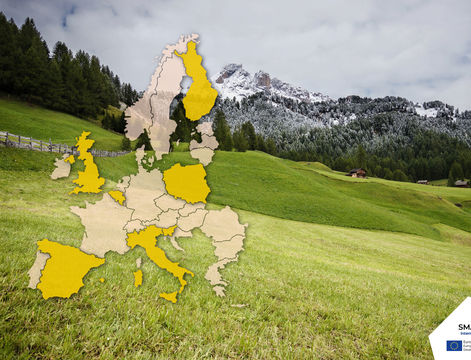
The 3rd SMARTY Interregional Policy Brokerage provided valuable insights into regional strategies and case studies supporting the green transition of SMEs

The best European initiatives in this field were presented at the 2nd Interregional Policy Brokerage, organized by i2CAT and the Generalitat de Catalunya
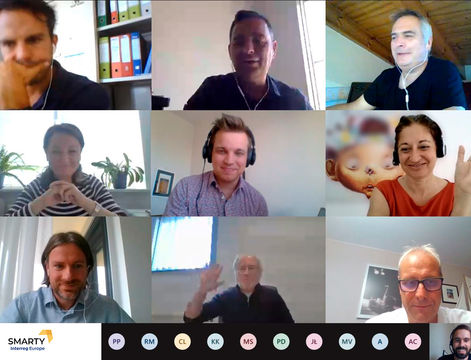
Digital Innovation Hubs initiatives for supporting digital transformation in SMEs
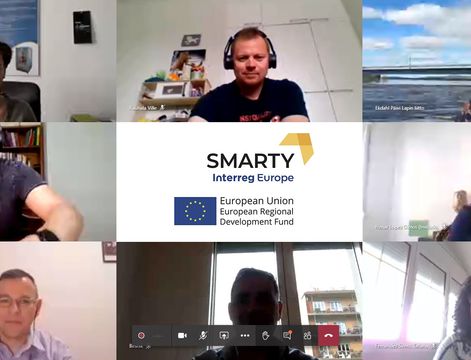
The first Interregional Policy Brokerage was held virtually due to the COVID-19 pandemic with the attendance of more than 60 participants.
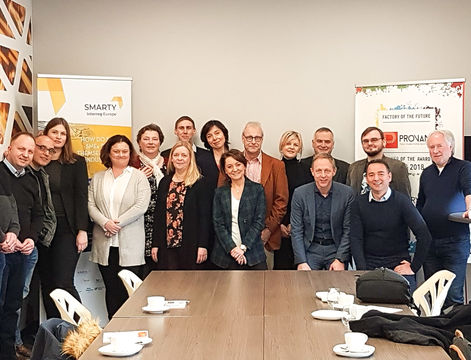
SMARTY held its 1st Interregional Thematic Seminar in Leuven, Belgium. Partners shared good practices to support SMEs in their uptake of Industry 4.0 solutions

SMARTY will organise structured policy learning among its partners with a view to supporting SMEs as they embrace the Industry 4.0 revolution.